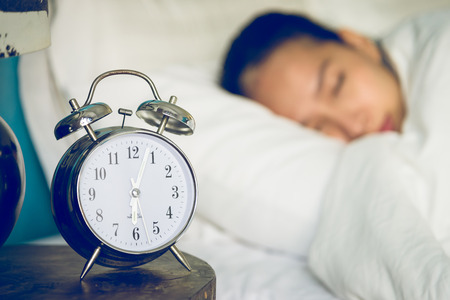Snooze More to Lose More
Are you really getting enough sleep?
Around 60% of Americans say they don’t get enough sleep each night.
Today, the average person is sleeping less than 7 hours a night. People who sleep less than 6 hours a night are automatically 30% more likely to become obese. A large reason for this has to do with the society we live in, where almost everything revolves around smart phones and other technology.

A prime example happens in many homes: sleeping with a television on.
This can prohibit the body from producing melatonin, the body’s hormone responsible for regulating circadian rhythms.
Circadian rhythms produce a 24-hour metabolic cycle. When these cycles are interrupted by distractions such as television, our metabolism is no longer as efficient as it should be. This causes us to eat more at night, keep stress levels elevated, thus causing us to pack on the pounds.
Even if you are committed to a specific diet, you will not see improvements in your fat loss unless you are getting the proper amount and kind of sleep. Simply getting enough sleep helps build muscle, enables fat burning within the body, controls appetite and reduces hunger and those late night cravings.
On the other hand, not getting enough sleep can negatively affect your body by burning rather than building muscle, packing on fat instead of burning it, and potentially becoming insulin resistant.
Not getting the proper amount of sleep will also cause an increase in the hormone Ghrelin, which stimulates hunger. When getting adequate sleep, it will cause an increase in the hormone Leptin, which sends signals of satiety to the brain and suppressing appetite.
Your track to living a better and healthier life all begins with a good night’s sleep.
Here are some tips to improve your sleeping habits:

1. Turn off TVs, cell phones, tablets, music, or other electronic devices. Also, make sure these devices aren’t giving off light or glowing.
2. Avoid taking naps, especially later in the day. Keep it under 20 minutes if a nap is absolutely necessary. Try other ways to regain energy such as a healthy snack, exercise, etc.
3. Try to go to bed and wake up around the same time every day. This will allow your body to get into a healthy sleeping pattern.
4. Avoid caffeine any time after noon. Even small amounts can prevent your brain from shutting down at night.
5. Avoid exercising close to bedtime. Try to complete your workouts within 3-4 hours before you go to bed.
6. Finish eating your last meal at least 1-2 hours before going to bed. Don’t eat foods high in sugar late at night.
7. Try to relax and “shut down” your mind as early as 2 hours before going to bed. Wandering thoughts will prevent you from falling asleep.
Sources: WebMD, Cavewomen Don’t Get Fat by Ester Bloom, Poliquin Group




